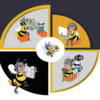
The 10 Commandments to protect yourself against scams and fraud
ĠEMMA strongly advises you that you follow these 10 Commandments religiously at all times to protect yourself from scams and fraud:
| 01 | Watch out for scams. Scammers target you anytime, anywhere, anyhow. | |
| 02 | Do not respond. Ignore suspicious emails, letters, house visits, phones calls or SMS messages – press ‘delete’, throw them out, shut the door, or just hang up. | |
| 03 | Do not agree to an offer straightaway. Do your research and seek independent advice if it involves significant money, time or commitment, and get the offer in writing | |
| 04 | Ask yourself who you are really dealing with. Scammers pose as people or organisations that you know and trust. | |
| 05 | Do not let scammers push your buttons. Scammers will play on your emotions to get what they want, including adopting a personal touch. Alternatively, they seek to rush you into making a quick decision before you look into it. Remember there are no guaranteed get-rich-quick schemes! | |
| 06 | Keep your computer secure. Always update your firewall, anti-virus and anti-spyware software, and buy only from a verified source. | |
| 07 | Only pay online using a secure payment service. Look for a URL starting with ‘https’ and a closed padlock symbol. | |
| 08 | Do not hand over money and information to someone you do not know and trust. Any request for payment by an unusual method such as wire transfers, reloadable cards, or gift cards that are nearly impossible to reverse or track is a tell-tale sign that it is part of a scam. And if you do hand money … it is rare to recover | |
| 09 | Protect your identity. Your personal details are private and invaluable. Keep them that way and away from scammers. | |
| 10 | If you spot a scam, spread the word. Tell your family and friends, and report it to: computer.crime@gov.mt. | |
In addition to these 10 Commandments, keep in mind the following:
- It is NOT always true that companies, businesses and enterprises are always legitimate. Scammers can easily pretend to have approval and registrations when in fact they do not.
- It is NOT always true that all websites are legitimate. It is easy and cheap to set up a website. And an enterprise’s website can be easily copied by scammers who will want to trick you into believing it to be genuine.
- It is NOT always true that scams involve large amounts of money. Sometimes scammers target many people and try to get a small amount of money from each person.
- It is NOT always true that scams are always about money. Some scams are aimed at stealing personal information from you.
Last year, ĠEMMA (www.gemma.gov.mt) and the eSkills Malta Foundation (https://eskills.org.mt) signed a strategic partnership to disseminate knowledge on digital financial capability. Fraud and scams is such one digital financial capability. Jointly we have issued 4 e-books on scams and fraud (https://gemma.gov.mt/ebook-download-page/) and Infographics (https://gemma.gov.mt/resources/infographics/) on tips of how to protect yourself with regard to over 30 different scams and frauds.
ĠEMMA has on 21st June 2021 signed a strategic partnership with the Local Councils Association. Both ĠEMMA and the eSkills Malta Foundation are working the Association so that come Octover 2021, monthly public fora are held on scams and fraud in local communities.
Article prepared by ĠEMMA (within the Ministry of Social Justice and Solidarity, the Family and Children’s Rights)




